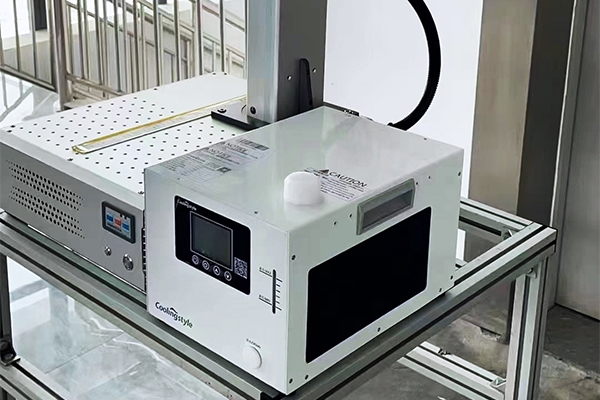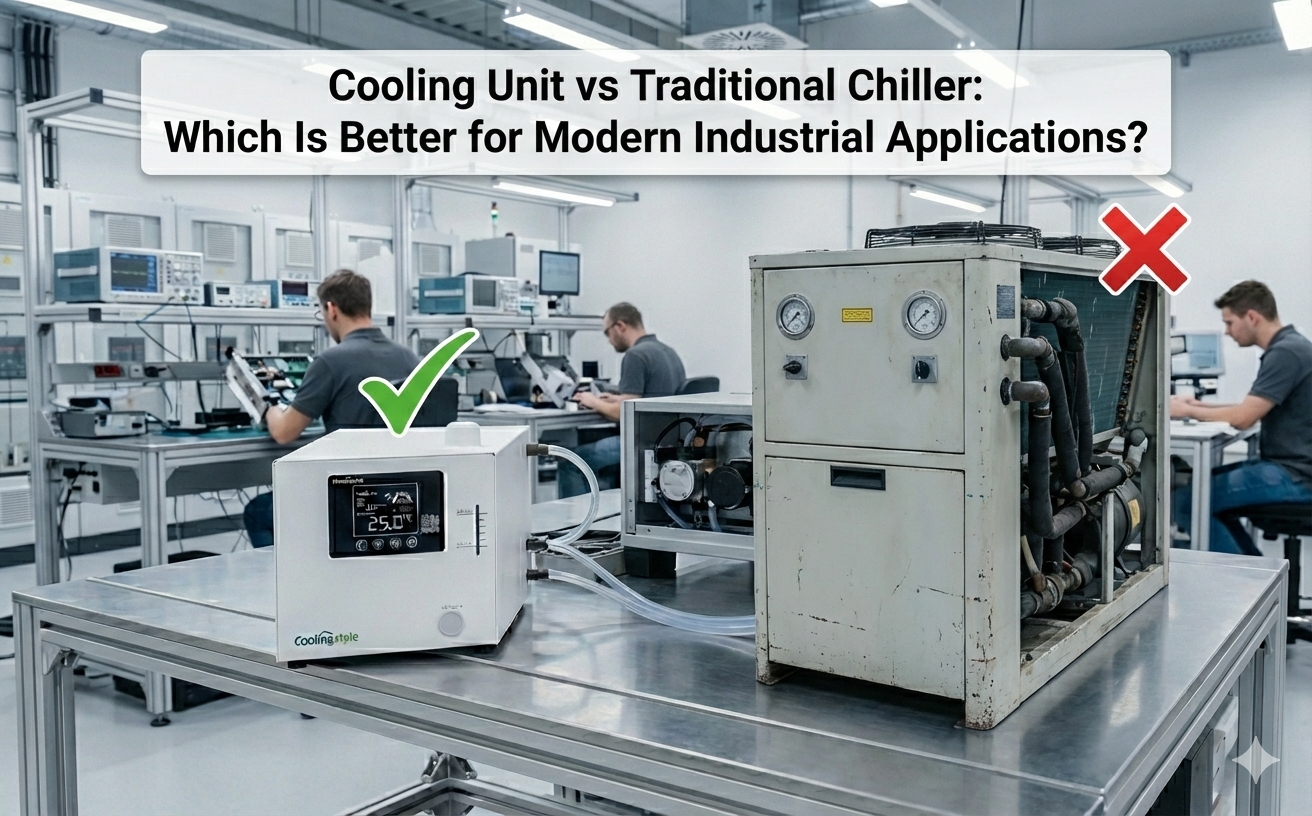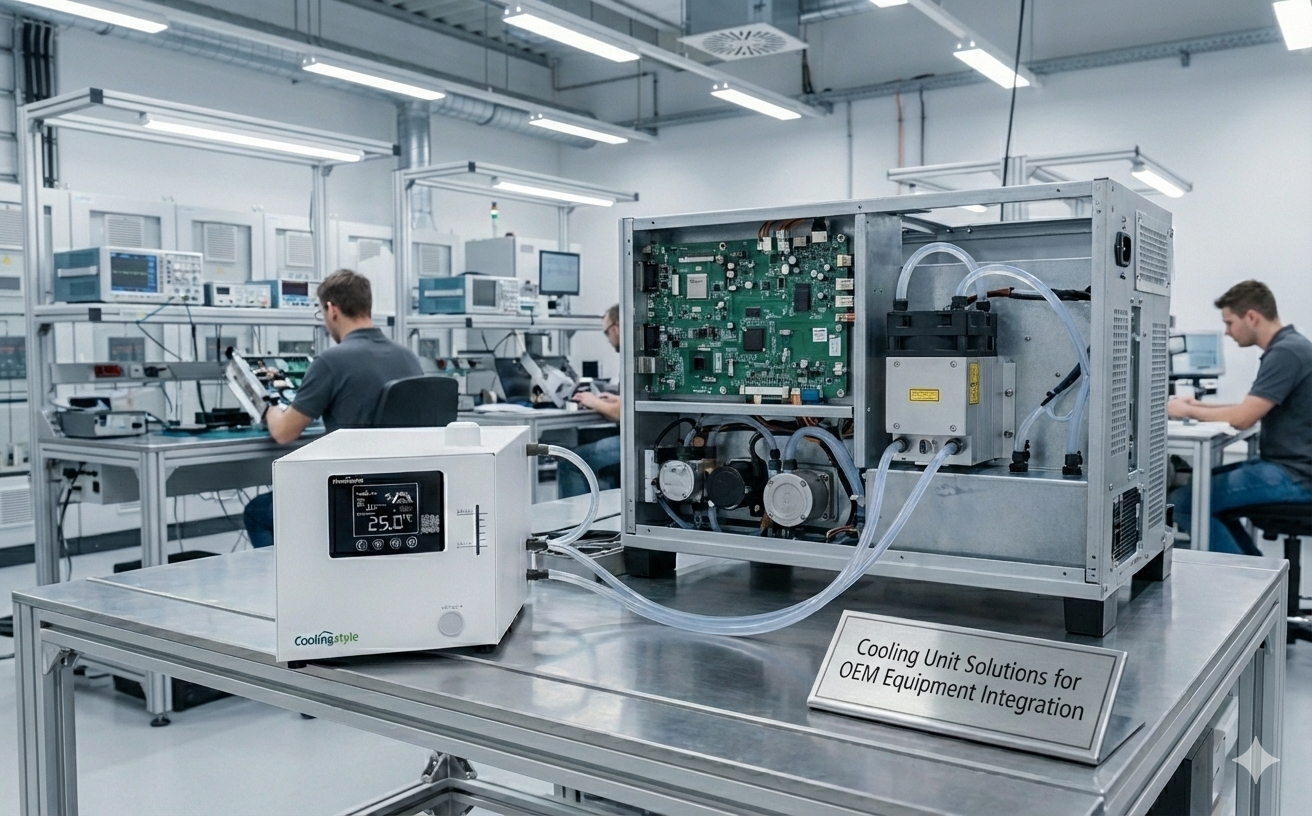레이저는 작동 중에 상당한 열을 생성합니다, 온도 제어를 성능에 중요하게 만듭니다. Chiller 시스템은 레이저의 효율성과 수명을 유지하는 데 필수적입니다., 산업에 관계없이, 의료, 또는 매일 응용 프로그램. 이 기사는 레이저 냉각의 필수 요소를 탐구합니다, 중요성, 그리고 정밀도와 신뢰성을 보장하기 위해 냉각기를 사용하는 이점.
레이저가 사용되는 것은 무엇입니까??
"레이저"라는 용어는 방사선 유도 방출에 의한 광 증폭, 다양한 산업에 스며 들었던 기술, 다양한 장점이 있는 레이저:
- 소매: 바코드는 그 이후로 유비쿼터스였습니다 1952.
- 조작: 냉각기 온도 정확도는 유지하는 데 중요한 특성입니다., 냉각기 온도 정확도는 유지하는 데 중요한 특성입니다., 그리고 마킹은 레이저에 크게 의존합니다.
- 군사 및 통신: 레이저는 고급 응용 프로그램에 중추적입니다.
- 헬스케어: 의료 절차 및 진단에 널리 사용됩니다.
레이저 냉각에서 냉각기의 역할
과열 방지:
냉각제는 레이저에서 열을 효율적으로 소산합니다, 민감한 구성 요소를 보호하고 일관된 성능을 유지합니다. 증기 압축 물 냉각기는 일반적으로 레이저 시스템의 주변 수준 이하의 온도를 조절하기 위해 일반적으로 사용됩니다..
장비 수명 연장:
안정적인 온도는 레이저의 작동 수명을 향상시킵니다, 수명주기의 정밀성과 신뢰성을 보장합니다.
레이저가 냉각기가 필요한 이유는 무엇입니까??
일반적인 레이저 냉각 시스템은 온도 컨트롤러를 통합합니다, 생성된 열을 제거하기 위한 공진기 전력 전자 및 광학 시스템, 생성된 열을 제거하기 위한 공진기 전력 전자 및 광학 시스템. 이 구성 요소는 작동 중에 생성 된 열을 관리하기 위해 함께 작동합니다.. 그들의 의복이 얼마나 무거운지, 작업 환경이 얼마나 더운지는 중요하지 않습니다., 보다 고급 시스템, 압축기 통합, 보다 정확한 열 제거 방법은 압축기에 의존합니다., 많은 양의 냉각이 필요한 건물이나 구조물에 적합합니다., 보다 정확한 열 제거 방법은 압축기에 의존합니다., 더 큰 정밀도와 효율성을 제공합니다.
온도가 레이저 성능에 어떤 영향을 미칩니다?
열은 광학 변환 효율과 빔 정밀도를 줄임으로써 레이저 성능에 직접 영향을 미칩니다.. 과열은 구성 요소를 왜곡 할 수 있습니다, 레이저 출력을 저하시킵니다, 전반적인 품질을 줄입니다.
냉각기 정확도의 중요성
정밀 냉각:
고성능 냉각기는 정확한 온도 제어를 보장합니다, 레이저 빔의 정확성을 유지하고 구성 요소 뒤틀림 방지에 필수.
맥동이없는 펌프:
맥동이없는 펌프가있는 시스템은 진동을 최소화합니다, 빔 초점을 보존하고 우수한 성능을 제공합니다.
다른 레이저에는 고유 한 냉각 요구 사항이 있습니다?
예. 산업용 레이저는 엄격한 온도 범위를 유지할 수있는 강력한 냉각 시스템을 요구합니다.. 냉장 재순환 냉각기, 온도 조절기 또는 솔레노이드 팽창 밸브가 장착되어 있습니다, 높은 정밀도와 안정성을 제공하여 이러한 요구를 충족하도록 설계되었습니다..
오늘날 레이저 기술의 응용
레이저는 산업 전반에 걸쳐 필수 불가능합니다:
- 최적의 성능을 보장하는 것입니다.: 고급 재료 분석.
- 열처리: 재료 강화.
- 최적의 성능을 보장하는 것입니다.: 원활한 소매 운영.
- 재료 처리: 냉각기 온도 정확도는 유지하는 데 중요한 특성입니다., 절단, 및 마킹.
레이저의 장점
- 높은 데이터 전송 기능: 통신에 널리 사용됩니다.
- 소형 데이터 저장: 레이저는 작은 공간에서 방대한 양의 데이터를 저장할 수 있습니다., CD에 필수적입니다, DVD, 그리고 다른 미디어.
- 치료의 정밀도: 의료 및 화장품 레이저는 타겟팅되고 효율적인 절차를 허용합니다..
최종 생각
냉각 시스템은 레이저에게는 필수 불가결합니다, 그들이 효율적으로 작동하고 높은 정밀도를 유지하도록합니다. 올바른 냉각기 시스템은 레이저의 수명을 연장 할뿐만 아니라 성능을 향상시킵니다., 모든 레이저 응용 프로그램에 필수 아이템으로 만듭니다. 산업을위한 것입니다, 의료, 또는 일상적인 사용, 레이저 기술의 모든 잠재력을 잠금 해제하는 데 적합한 냉각기를 선택하는 것이 중요합니다..





